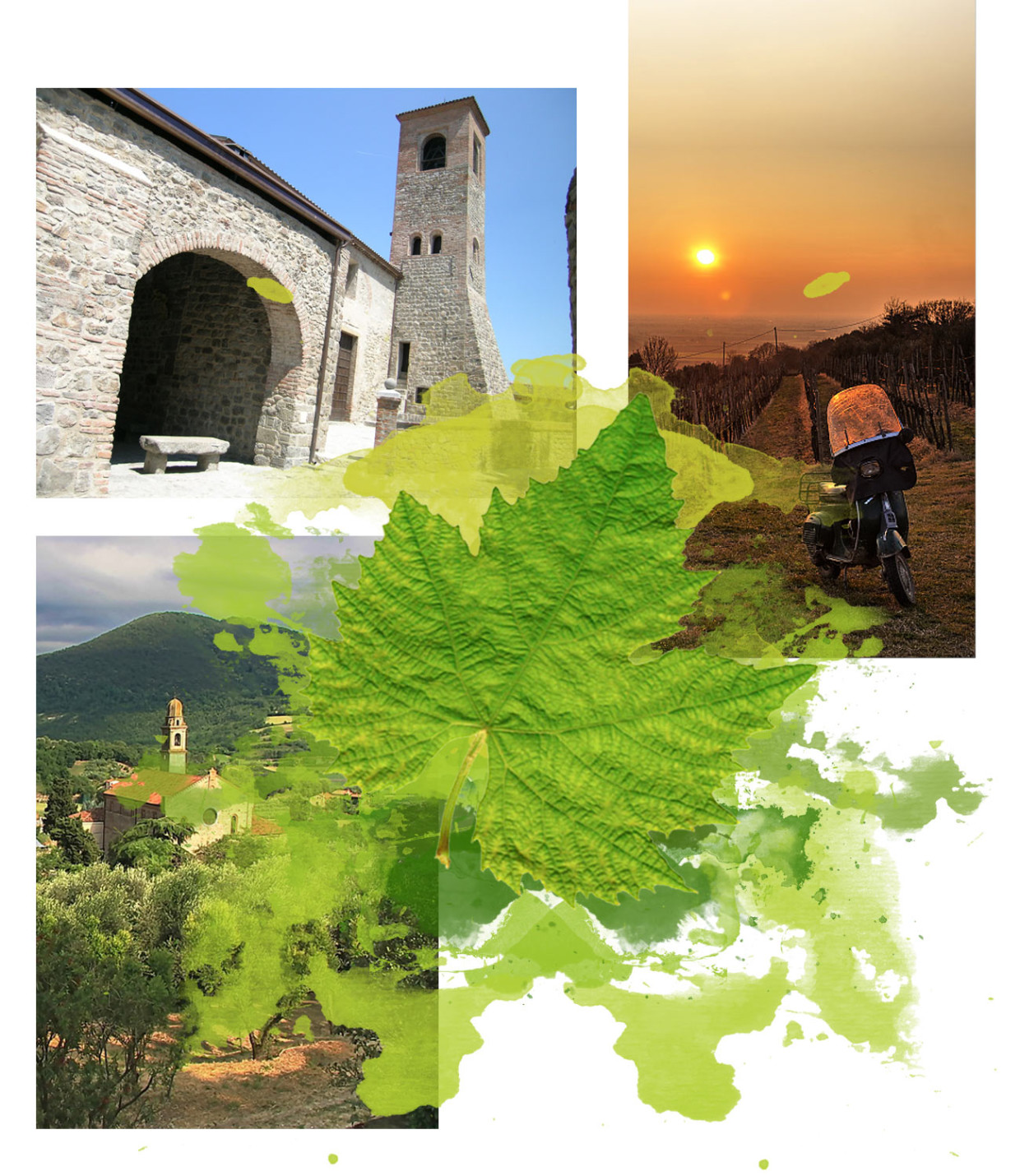

The connection with the territory
« Vast chestnut, walnut, beech, ash, and oak woods covered the slopes of Arquà, but it was mainly the vineyards, olive groves, and almond trees that contributed to create the suggestive and typical Arquatense landscape ».
F. Petrarca (1304-1374)
These are the lands that Petrarch wrote about, and it is precisely here that our company was born, among the gentle hills of the Euganean Hills, a stone’s throw from Arquà Petrarca, one of the most beautiful villages in Italy, where the illustrious poet Francesco Petrarch spent his last years.
In our vineyards, maintained and cared for like gardens, each row is an expression of profound respect for nature and continuous contact between humans and the land.
Treatments are carried out with the utmost respect for the environment, according to the principles of integrated agriculture. We follow rules aimed at obtaining maximum quality and dictated by long experience, applying the right balance between tradition and innovation.
The lands host vines ranging in age from 2 to 70 years old. To cultivate with love according to tradition, in full respect of nature, means to give continuity and genuineness to one’s projects and to guarantee a result always up to our ambitions.
« Wine is the poetry of the earth ».
M. Soldati (1609-1999)F. Petrarca (1304-1374)
In our wines, the scent and taste of the Euganean Hills' land
Wine is art, poetry, a blend of historical roots and new emotions, a great love of ours that we want to convey to our customers.
The interventions in the cellar aim to "accompany" the wine in its maturation process without forcing it, remaining faithful to the principle that it is always the raw material that determines the quality of the finished product.


« Here, among the Euganean Hills…I built a small but pretty house, surrounded by an olive grove and a vineyard, which gives enough for a small and modest family ».
F. Petrarca (1304-1374)



The peculiar and evocative landscape of the Euganean Hills has attracted and inspired generations of poets, writers, and artists.
It is a mountainous area that formed between 34 and 33 million years ago, consisting of about a hundred reliefs whose height never exceeds 600 meters. The peculiar geological history made possible the formation of an extraordinary botanical and faunal biodiversity, which starting from 1989 was decided to safeguard by establishing the first Regional Park of Veneto.
Each hill is the result of a specific movement of the earth’s crust and, consequently, has not only a unique shape but also its composition of soil and minerals. This explains the existence of solitary hills, with an unusual and evocative atmosphere, surrounded by the plain. The Euganean Hills have maintained the beauty that has presented itself to visitors’ eyes for centuries and reaches its maximum splendor in spring when the birds’ singing spreads in the warm and sweet air.
In the Middle Ages, every religious settlement had to produce its wine; thus, the birth of monasteries gave new impetus to the cultivation of vineyards and wine production in the Euganean Hills.
Three kilometers from our company, in Arquà Petrarca, is the house of Francesco Petrarca, where he spent the last years of his life. The city, admitted to the exclusive club of the most beautiful villages in Italy, is a medieval village that preserves the charm of the past and is considered the pearl of the Euganean Hills, with stone houses, narrow cobblestone alleys, and medieval walls. Thanks to excellent local products, Arquà adheres to the national associations “City of Oil” and “City of Wine.”
Petrarca moved to his “house in Arquà” in 1370, where he died four years later. He spent his last months writing, researching, and sending letters to his distant friends. The poet’s remains are preserved in the sarcophagus that rises in the square of the parish church. After his death, the poet’s house soon became a destination for literary pilgrimages and now welcomes about sixty thousand visitors per year.
« Rarely do great beauty and great virtue reside together ».
F. Petrarca (1304-1374)F. Petrarca (1304-1374)


